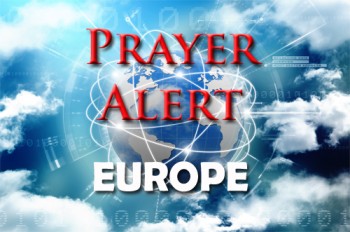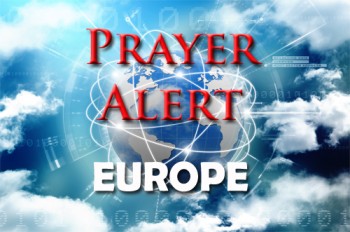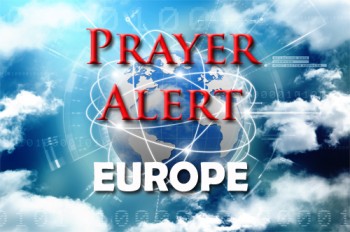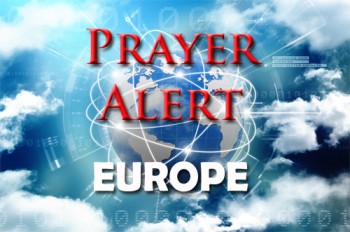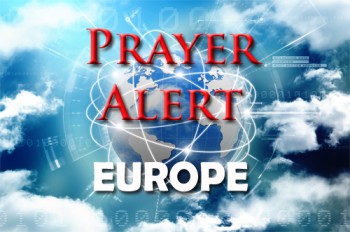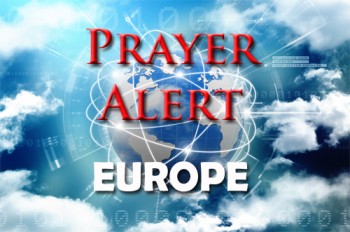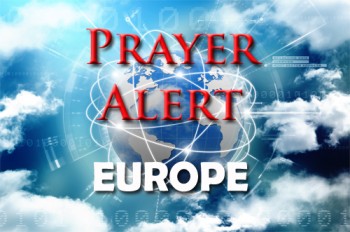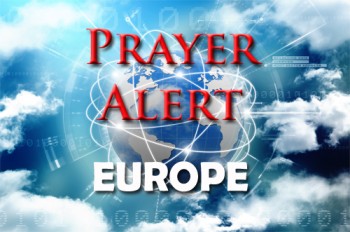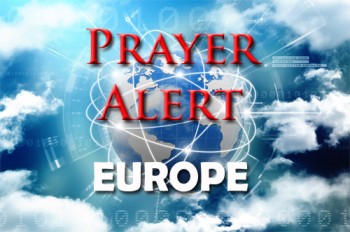Displaying items by tag: Spain
France, Germany, Spain - coronavirus second wave
President Emmanuel Macron has announced a night-time curfew in Paris and eight other cities to try to curb the rapid spread of coronavirus. It affects 22 million people and will be applied for four weeks, possibly extending to six weeks. Germany announced that bars and restaurants in higher-risk areas must close by 23:00 as the country recorded the highest daily infection figure since the start of the pandemic (6,638 in 24 hours). Private gatherings are limited to ten people from two households. Meanwhile, as Spaniards prepared to travel for a long weekend national holiday, Madrid residents were told to stay home as another state of emergency to curb rising coronavirus cases was implemented. Madrid’s leader wants a partial lockdown to avoid deeper damage to businesses: see Pray for the businesses facing bankruptcies, for the millions now unemployed, and for the governments running out of resources for furloughed workers.
Spain: Madrid’s sharp virus spread leads to new anti-outbreak plan
A second coronavirus wave is expanding fast, and Madrid is the worst-affected place in Spain and indeed in Europe. A row has erupted over a lockdown there. The regional government did not vote in favour of the restrictions, and questioned the legality of stricter curbs on personal movement and social gatherings. Political disputes have angered many Spaniards. Health officials from Spain’s central government and the Madrid region agreed on a set of health metrics that dictate standardised restrictions in cities with a population of 100,000 or more. There are uncontrolled virus clusters in the Spanish capital. Spain has seen more than 748,000 infections and has a confirmed virus death toll of over 31,400. However, experts say all numbers understate the true toll of the pandemic due to limited testing and other factors.
Re-opening Europe
Some European countries are cautiously coming out of lockdown. Italy is opening some factories and construction sites. Spain is allowing hairdressers and small businesses to reopen. Germany’s children are back at school. France is also easing lockdown. Political leaders now grapple with the economic and social shocks that lockdown has left behind, while trying to avoid large-scale second waves of infection. Italy is contending with a fresh rise in migrant arrivals from Libya, an ongoing economic crisis, and uneven support from Brussels. Spain is squabbling over spending as Catalan separatist leaders have seized on the pandemic to reignite the argument that their wealthy industrialised region would be better off independent from the devastated economy of the rest of Spain. Germany handled the coronavirus crisis better than other large European countries and favours cautious reopening, but business groups and local governments want to move faster.
Unlocking Europe
Europeans are relaxing coronavirus restrictions for children, with Spain allowing under-14s out of their homes from this week. Holland’s primary schools reopen next month, and French children aged 5 to 11 will return to school on 12 May, but with a limit of 15 pupils per class. The following week, older children will return in selected year groups. Angela Merkel warned that Germany may be rushing its lockdown exit as physical distancing is relaxing and smaller shops reopen. She said Germany remained ‘on the thinnest ice’ despite early achievements. Belgium has a detailed plan to lift coronavirus restrictions gradually, starting on 4 May, when fabric shops will open in order for people to comply with requirements for children over 12 to wear masks on public transport. From 11 May all shops and schools will reopen, with limited pupils in each class.
Spain: ‘We have nothing to keep the sea out’
After Storm Gloria devastated one of the Mediterranean’s largest wetlands in January, an urgent search began for solutions to protect it from further floods and creeping water levels. The low-lying Ebro delta suffered most, with waves inundating rice fields and irrigation channels with saltwater as far as two miles inland. Industry has reduced essential sediment from reaching the delta. The sediment is essential for local ecology and protecting shorelines from erosion. Some shorelines are receding over five metres annually. Gloria badly damaged mussel and oyster farms, which sustained losses of £1.3 million. ‘No one has ever seen a storm like this here’, said one farmer. Houses were flooded. ‘Imagine the impact of nine-metre waves and 100km per hour winds hitting a region at sea level,’ said the president of the Ebro delta. For decades the delta’s fragile ecology has suffered from political neglect and over-exploitation of the river.
Spain: immigrant centre attacked
On 4 December, a bomb squad in Madrid destroyed a grenade which had been thrown over the wall of a migrant centre for children. Police said it was a training grenade containing a small amount of explosives, and no injuries were reported. The centre houses dozens of unaccompanied minors, many of them immigrants. The attack has been widely condemned by Spanish politicians and human rights campaigners, with many linking it to anti-immigrant rhetoric. During a televised election debate in November, the leader of the far-right Vox party, Santiago Abascal, accused youths at the centre of causing a spike in crime in the surrounding neighbourhood, where he lives. In the election, Vox more than doubled its seats to become the country's third most-powerful party.
Spain: UN convention on climate change
After Chile decided against hosting the 2019 UN climate change conference (COP25) following weeks of protests, the UN has confirmed that it will take place in Madrid, from 2 to 13 December. Chile will preside, with logistical support from the Spanish government.. Britain has been chosen to host the next climate summit, COP26, in Glasgow. On 26 November the UN stated that they intend to cut global emissions by 7.6% every year for the next decade to meet the 1.5°C Paris target. They warn that unless global greenhouse gas emissions fall drastically between 2020 and 2030, the world will miss the opportunity to work towards that target. Even if all current unconditional commitments are implemented, temperatures will rise by 3.2°C, bringing even wider-ranging and more destructive climate impacts. See also
Europe’s arms exports to Saudi Arabia
European countries temporarily halted arms exports to Turkey after its military incursion into Syria. But Europe’s other arms trading partner, Saudi Arabia, has caused deaths or injuries of 18,000 in Yemen, where 24.1 million need humanitarian assistance. Despite these figures, EU countries still have arms deals with the Saudis. The UK only halted arms exports in June after exports licences were found to be unlawful. Saudi Arabia was France's second-biggest weapons client last year: over €1 billion worth, including armoured vehicles used in or near Yemen. Only Spain suspended arms exports to Saudi Arabia, citing ‘use of this type of armament against a civilian population’. Why would EU countries halt arms to Turkey due to conflict, but not to Saudi Arabia for the same reasons? There could be several reasons, but two stand out - business and alliances.
Spain: pre-election protests
On 10 November Spain will have its fourth general election in four years. The Socialists received the most votes in April’s election, with Catalan separatist parties increasing their number of MPs. Since then, the supreme court has sentenced nine pro-independence politicians and civic leaders to a total of 100 years in prison. These sentences brought thousands of Catalonians onto the streets of many cities, and further violent clashes by far-right counter-protesters. Petrol bombs, blazing barricades, and vandalised buildings are new for Catalan’s pacifist independence movement, but the graffiti on a Barcelona wall read, ‘You have shown us that being peaceful is useless’. Hundreds have been injured in confrontations with security forces. The latest event was a ‘clean protest’ when protesters put detergent in a fountain, as a message to ‘clean up the mess from Spain’. One protester said demonstrations would continue until all the political prisoners were freed. See
Spain: conflict in Catalonia
Catalonia is a semi-autonomous region in north-east Spain whose history dates back almost a thousand years. The wealthy region has 7.5 million people, with their own language, parliament, flag, anthem, and police force. It also controls some of its own public services. Catalan nationalists have long complained that their region sends too much money to poorer parts of Spain, as taxes are controlled by Madrid. Last October about 90% of Catalan voters backed independence, in a turnout of 43%. Recently Spanish police arrested 9 Catalan independence activists in Barcelona. They face charges of rebellion, terrorism and possession of explosives used in bomb-making. They are associated with the Committees for the Defence of the Republic (CDR), a network of radical groups that advocates direct action to secure independence from Spain. CDR has previously blocked major roads and railway lines. Police believe the activists plan to carry out sabotage and violent attacks on the anniversary of the referendum on independence.
